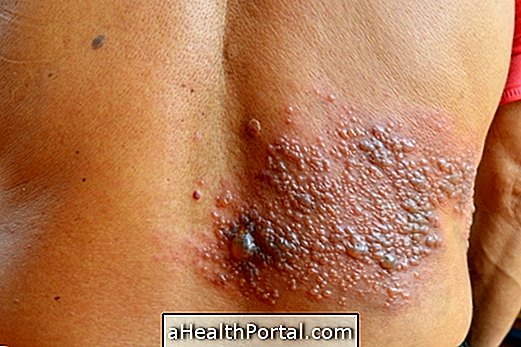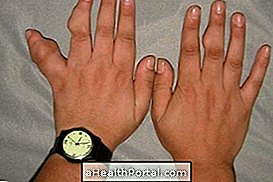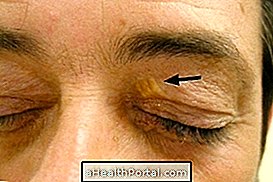There are several home treatments that can help cure hoarseness, because this situation is not always severe and tends to disappear in a few days, with the rest of the voice and proper hydration of the throat.
The 7 tips for treating hoarseness at home are:
- Drink plenty of water, because the vocal cords need to be always well cleaned and moisturized;
- Avoid foods and beverages that are very cold or very hot, because this irritates the region, making the hoarseness worse;
- Eat an apple with peel because it has astringent action, cleaning the mouth, teeth and throat and in addition it improves the functioning of the temporomandibular joint;
- Avoid talking too loud or too low to keep your throat muscles from tiring;
- Gargle with lukewarm water and salt at least once a day to remove any impurities from the throat;
- To rest the voice, avoiding to speak much;
- Relax the neck area by turning your head slowly 360 degrees.

By following all of these recommendations hoarseness is expected to improve or disappear.
Usually the doctor only indicates the use of steroids or antibiotics when they are key to solving the cause. When the cause is the misuse of the voice, the speech therapy can help.
Constant hoarseness
In case of constant hoarseness it is recommended to go to the doctor because it may be something more serious that needs a specific treatment, such as nodules in the vocal cords or cancer of the larynx. Learn more about Laryngeal Cancer.
Steady hoarseness may be related to habits such as smoking, drinking or being in very polluted environments.
Emotional hoarseness can occur during periods of increased stress and anxiety, and in this case taking a soothing tea like valerian and attempting to resolve problems can resolve hoarseness. See some natural remedies for calming.
What causes hoarseness
The most common causes of hoarseness are poor use of voice, flu, colds or phlegm, hormonal changes such as those occurring in adolescence, gastroesophageal reflux, which damages the larynx, respiratory allergies, persistent dry cough, hypothyroidism, stress, anxiety, Parkinson's disease or myasthenia and heart or throat surgery.
Other causes are also the fact that you are a smoker or consuming alcoholic beverages in excess, and for the treatment to be really effective it is important to discover and eliminate the cause.

When to go to the doctor
It is recommended to go to the doctor if the hoarseness remains for more than 2 weeks or if accompanied by symptoms such as coughing up blood or difficulty breathing. Babies should also be taken to the pediatrician as soon as they have hoarseness.
The physician appointed to address this problem is the general practitioner who can assess the general health of the individual and the common causes of hoarseness. If he thinks hoarseness is specific, he may indicate the specialist who is the otolaryngologist.
In the consultation, the doctor should be told how long he has been hoarse, when he has noticed the hoarseness and if there are other associated symptoms. The more information you give your doctor, the better it will be for him to make the diagnosis and indicate the appropriate treatment.
What exams do you do?
Tests for hoarseness are needed to clarify your cause, especially if hoarseness is not easily cured.
At the appointment, the doctor may see the throat through laryngoscopy, but depending on the suspicion, you may also order exams such as endoscopy, and laryngeal electromyography, for example. Learn how to perform an endoscopy and how to prepare.

























